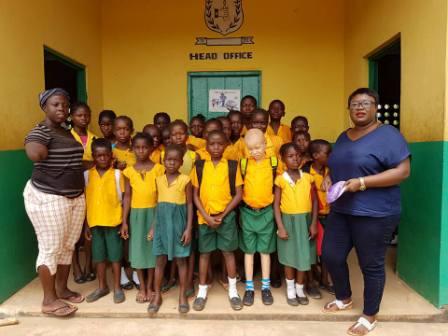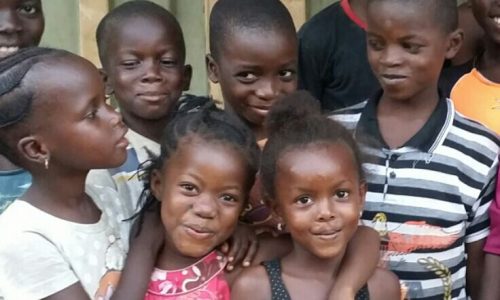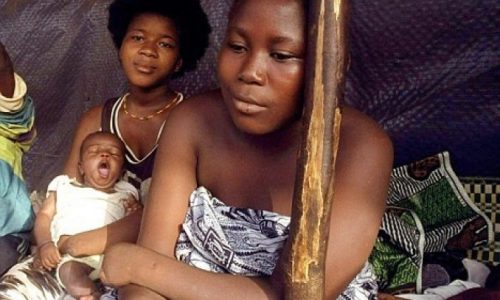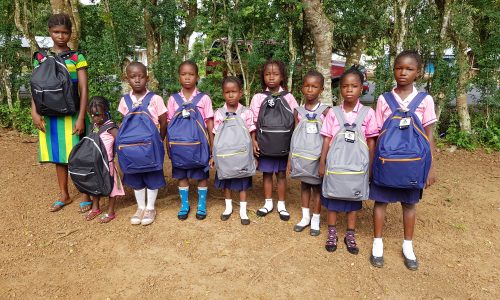FEASIBILITY STUDIES
During a feasibility study trip in 2008, it was discovered that many of the physically challenged women had young children; apparently some men had put them in the family way and abandoned them. So they did not only have to contend with their disabilities, they also had dependants to take care of. Some had to use their hands to crawl as they do not have wheelchairs.
Moreover, research undertaken 2010 and in 2011 illustrates that although an Amputee Camp was facilitated specifically to provide artificial limbs, rehabilitate and educate amputees specifically, many of the victims did not receive the proposed rehabilitation and education’ therefore they do not have the ability to sustain themselves and countless amputees have become beggars as they continue the struggle of life.
Recent research undertaken in November 2012 has highlighted high mortality rates among the war afflicted amputees. 3 amputees died in the Grafton Amputee Camp in the space of 2 months. 5 other amputees died in 3 other camps, totalling 8 deaths in 3 camps in the last 7 months. All these deaths are attributed to severe poverty: – poor nutrition, lack of access to Medicare, especially for medical condition resulting from the war.
Our research also unearth a social malaise; a crippling level of deprivation among the children of the living and deceased amputees. These dependants are severely disadvantaged because they do not have the opportunities to complete or further their education, especially those who have lost one or both of their parents. Few have turned to prostitution to put food of the table for their siblings as they have no one to provide aid. Many of the children have never been inside a classroom as they live or go to the streets to beg with their parents.
FURTHER RESEARCH
An extract from a report from a service of the United Nation’s Office for the Coordination of Humanitarian Affairs : Reference Soucrce IRIN
Humanitarian news and analysis service IRIN, reported on the 24th October 2011 that “Cutting off peoples’ limbs – in most cases their hands – was one of the brutal strategies used by members of the Revolutionary United Front to terrify people to support them. Some 27,000 Sierra Leoneans are estimated to have been disabled or have had one or more of their limbs amputated during the 1991-2002 civil war.
In 2004 the Truth and Reconciliation Committee (TRC), set up to try to deliver accountability for human rights abuses, issued a report recommending that amputees, war widows, children, victims of sexual violence and the seriously war-wounded, should receive reparations in the form of free education for children, free health care and skills training to be managed by the National Commission for Social Action (NaCSA). Since then of the 32,000 people registered, 20,107 have received only a cash handout of between US$70 and $200, and 12,000 have received nothing at all.
NaCSA also provided fistula surgery for women who had been raped, and gave some emergency medical assistance (such as bullet-removal) to the severely war-wounded, said Sattie Kamara, NaCSA reparations programme outreach coordinator. She admitted the government should be responsible for reparations but said NaCSA did not have the funds to do anything more. It dedicated $319,000 of its own budget, and relied on US$3 million provided by the UN Peace building Fund to cover the handouts. Previous reparations manager Amadu Bangura estimated it would take US$14 million to run the reparations programme.
Poor planning is also to blame, as arrangements need to be set up with the ministries of health and education, but discussions “take time” and have thus far not led to much, according to Kamara.
The government has estimated in the past that some 100,000 people would be eligible for reparations.
Ad hoc assistance
The Sierra Leone amputee association, set up in 2000 to represent amputees, tries to help, giving food and clothing when it can, said chairman Alhaji Jusu Jaka Ngobeh, but it relies on help from churches, mosques and a few NGOs.
NGO Fambul Tok (Family Talk in local language Krio) brings together victims and offenders at the village level to talk about atrocities that were committed, as part of a community healing process.
Though reparations are not involved, when they can, perpetrators sometimes offer financial support to help the victim or their family. Some say this is a more sustainable, practical form of reparations, given the sheer extent of the suffering that took place across the country.
On a day-to-day basis, most amputees in Freetown survive by begging as even those who are educated beyond secondary school level find it hard to get work, said Vandi Konneh in Freetown. A lucky few find work on construction sites or collect firewood and coal, he said. Rather than attend school, most of the children of amputees also beg as their parents cannot afford to pay their school fees.
SOURCE:
IRIN:
http://www.irinnews.org/report.aspx?reportid=94037FINAL
Government delay reparations for Children born of Amputees in Sierra Leone:
http://www.reporters-360.com/2012/11/government-delay-reparations-for-children-born-of-amputees-in-sierra-leone



